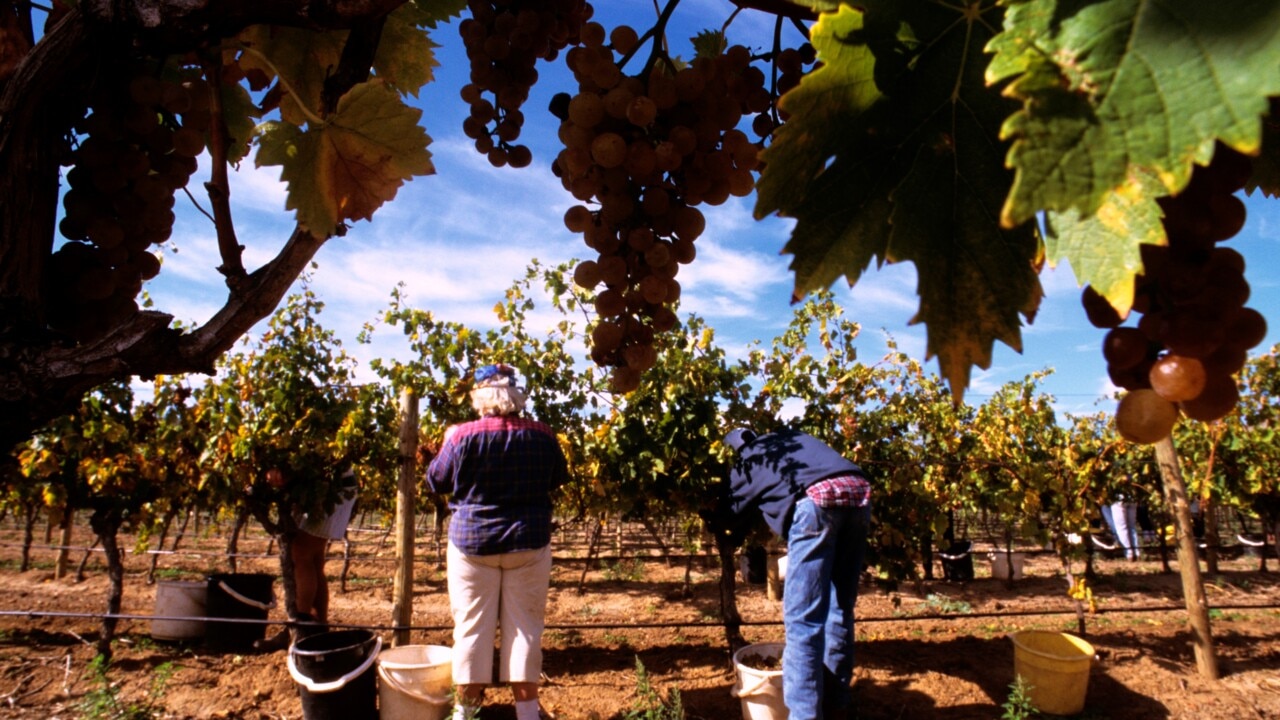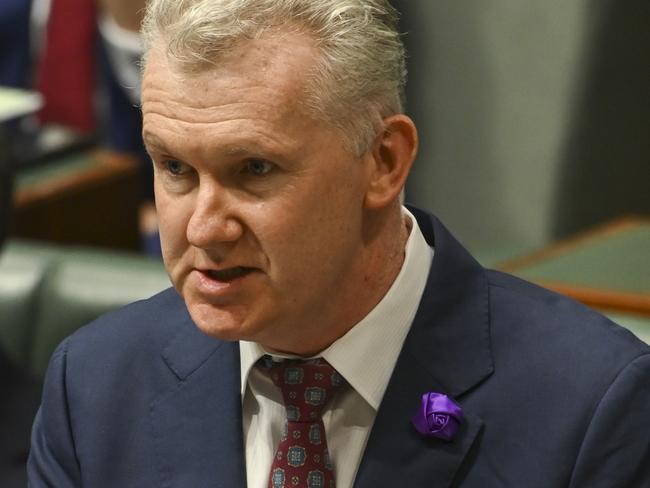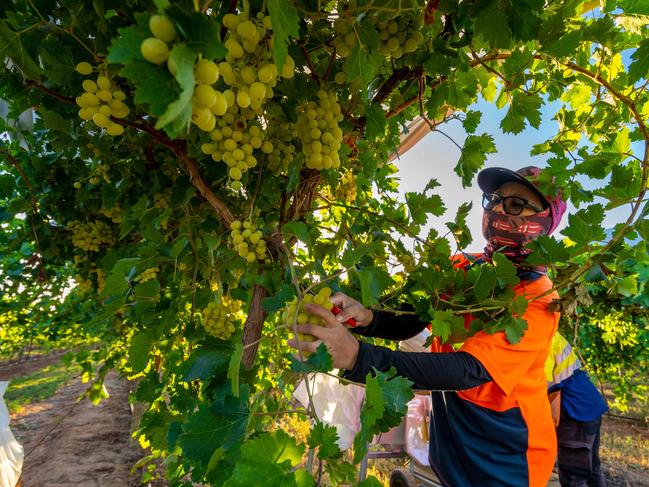Proposal to allow farm workers to be partially paid with food sparks backlash
A contentious proposal for Australian farmers and the people who work for them has been met with immediate backlash.

At Work
Don't miss out on the headlines from At Work. Followed categories will be added to My News.
A proposal to allow farmers to partially pay workers with fruit and vegetables has been met with immediate backlash.
The National Farmers’ Federation (NFF) is pushing for employers to be able to take “non-monetary benefits” provided to employees such as board and food into account when negotiating workplace pay deals.
The proposal is one of 40 recommendations made by the peak body in a paper released ahead of the Albanese government’s jobs and skills summit next month.
Employment Minister Tony Burke said the idea was unlikely to get up.
“I’ve heard people colloquially say they’re ‘paid peanuts’ – but this is the first time I’ve heard someone propose it for real,” he said.
“We’re not ruling ideas in or out before the summit has even started. But on this one, it’s fair to say, I’d need a lot of convincing.”

Nationals leader David Littleproud said farmers would be “rightfully scratching their heads” asking how this proposal would get workers on farms.
“It’s difficult to understand why the NFF have lost their courage to prosecute for the implementation of the ag visa,” the Opposition agriculture spokesman said.
Mr Littleproud and his party have been pushing for the resurrection of the canned agriculture visa, arguing that it is needed to fill a dearth of 170,000 workers in farming and food processing sectors.
In its paper, the NFF recognises the chronic labour shortage plaguing Australian farms.
It argues farmers are often “bogged down in red tape” and that enterprise bargaining needs to be streamlined to make it easier to hire staff.
The paper said the complexity of the industrial relations system encouraged farmers to outsource work to labour-hire firms and that the majority of noncompliance was a result of “mistake or ignorance”.
However, it also said farm work had earned a “not completely unfair” reputation for mistreatment and underpayment of its workforce.
The NFF has recommended the introduction of criminal penalties for intentional “wage theft” and a national system of regulating labour hire companies.
The NFF has also pitched a possible return to the “no-disadvantage” test, a lower standard for pay deals which the Labor Rudd government replaced with the “better off overall test” in 2009.

The newer test, which is supported by the union movement, requires any new enterprise agreement to leave workers better off, compared with basic award conditions.
The “better off overall test” is understood to be up for discussion at the jobs summit but the Albanese government is unlikely to make any major changes to it.
Australian Workers’ Union national secretary Daniel Walton said the days of “paying” workers with food instead of money should be “long behind us”.
“Some jobs in remote locations require employers to provide accommodation and life essentials,” he said.
“At no point, however, should this necessary provision of essentials be considered some kind of ‘service’ for which workers are expected to forgo pay.”
He called on NFF president Fiona Simson to clarify the sector’s intentions.
“I understand the NFF is going further today than they have before in acknowledging how serious the problem of worker exploitation is on Australian farms,” he said.
“There are some other meaningful recommendations in their position paper, but they are overshadowed by this alarming ‘non-monetary benefits’ proposal.”
Originally published as Proposal to allow farm workers to be partially paid with food sparks backlash


